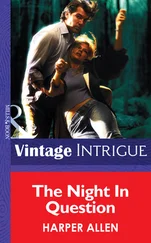Richard Gordon - A QUESTION OF GUILT
Здесь есть возможность читать онлайн «Richard Gordon - A QUESTION OF GUILT» весь текст электронной книги совершенно бесплатно (целиком полную версию без сокращений). В некоторых случаях можно слушать аудио, скачать через торрент в формате fb2 и присутствует краткое содержание. Жанр: Юмористическая проза, на английском языке. Описание произведения, (предисловие) а так же отзывы посетителей доступны на портале библиотеки ЛибКат.
- Название:A QUESTION OF GUILT
- Автор:
- Жанр:
- Год:неизвестен
- ISBN:нет данных
- Рейтинг книги:4 / 5. Голосов: 1
-
Избранное:Добавить в избранное
- Отзывы:
-
Ваша оценка:
- 80
- 1
- 2
- 3
- 4
- 5
A QUESTION OF GUILT: краткое содержание, описание и аннотация
Предлагаем к чтению аннотацию, описание, краткое содержание или предисловие (зависит от того, что написал сам автор книги «A QUESTION OF GUILT»). Если вы не нашли необходимую информацию о книге — напишите в комментариях, мы постараемся отыскать её.
A QUESTION OF GUILT — читать онлайн бесплатно полную книгу (весь текст) целиком
Ниже представлен текст книги, разбитый по страницам. Система сохранения места последней прочитанной страницы, позволяет с удобством читать онлайн бесплатно книгу «A QUESTION OF GUILT», без необходимости каждый раз заново искать на чём Вы остановились. Поставьте закладку, и сможете в любой момент перейти на страницу, на которой закончили чтение.
Интервал:
Закладка:
Three weeks later, on the morning of Wednesday, April 27, 1910, King Edward VII arrived at Dover from Calais in the royal yacht Alexandra. He had journeyed by train across France from Biarritz, with his usual pause in Paris. Biarritz saw the English king a week or two every spring. He ate, drank, smoked cigars, played baccarat, strolled the promenade in the Atlantic breezes which sprayed the sea along the rocky coast, drove into the Pyrenees in his Mercedes, the royal motor-engineer Mr Stamper sitting next to the chauffeur, poised to jump out for the breakdowns.
The machinery of State meanwhile clanked round the King. Mr Asquith had kissed hands on appointment as Prime Minister in the Hotel de Palais. The King's suggestion that a British cabinet meeting be held the following week at the Hotel Crillon in Paris, was thought placing the convenience of the Monarch too noticeably above the proprieties of the Constitution.
King Edward returned among rumours of Mr Asquith's demand he create sufficient new Liberal peers to swamp the House of Lords, and bring it to the prime minister's bidding. A royal threat was enough. The House of Lords would fight for their right to throw out budgets, but not at the price of being overwhelmed by a pack of upstart bounders. He returned also to a buzz about his health.
The King went to the opera, he saw Lord Kitchener and the pictures at the Royal Academy, he went to the opera again, he went to Sandringham and to Mrs Keppel's house in Grosvenor Street. On Thursday, May 5, he failed to welcome Queen Alexandra back from her Mediterranean cruise, and Buckingham Palace announced that he was suffering a severe cold.
The next morning, the King's doctors declared that he gave rise to anxiety. His horse _Witch of the Air_ won the 4.15 at Kempton Park. They sent for the Queen. The Queen with sublime understanding sent for Mrs Keppel. At six o'clock, the doctors proclaimed his condition critical. Saturday morning's _Times _appeared with thick black lines separating all its columns.
His people were shocked. The reticence of the bulletins had drawn knots instead of crowds to the Palace railings. The King had worn the crown of scandal, but earned the affection of his easygoing, race-loving, self-indulgent subjects as deservedly as his nickname 'Tum-tum.' He was crowned with France and Russia his country's implacable enemies. He died leaving them enduring friends.
'You'll enjoy the royal funeral,' Eliot told Nancy that Saturday evening. 'We do those sort of things terrifically well.'
Eliot heard the doorbell. There were hurried footsteps on the stairs. The door flew open without a knock. Ruston appeared with Wince, who carried a brown attachй case. Both stopped, staring at Nancy. She sat on a stool between the fireplace and Eliot, who stood unmoving, hands in pockets, resentful of the interruption.
'We're just going out to dine. Can I offer you fellows a b and s?'
Ruston's gesture brushed aside brandy and soda. 'I want to speak to you, Eliot. In confidence.'
'Miss Grange's discretion is as remarkable as her intelligence.'
'I must insist on seeing you alone.'
Ruston sounded angry. He called every week, his business trivial-generally chiding Eliot on not distributing the movement's tracts among the doctors, lawyers, ministers of religion and similar professional men who might afford him confidence. Eliot objected that he was too busy patching the sick poor to ring middle-class doorbells. He knew that Ruston himself wrote the tracts, and thought them intellectually powerfully persuasive.
Nancy stood. 'I've anyway to see Frau Ebert about our Sunday dinner,' she said accommodatingly.
'Why must you keep company with that woman?' asked Ruston peevishly as the door shut.
'Marat was married and even the incorruptable Robespierre was not celibate.'
'Women interfere.' Wince laid the attachй on the table, unlocking it with a key on a bunch from his trouser pocket. 'And talk.'
'What we are to say musn't reach another ear, Eliot, even in a whisper. You'll swear to that?'
'I can hardly give my sacred oath if we regard the Bible as capitalist propaganda. You can't have it both ways.'
'It makes no difference if you agree or not,' Ruston told him impatiently. 'The only way to keep a man's mouth shut is assuring him that his head will come off if he opens it. You know we can do that, don't you?' he asked menacingly. 'Remember what happened to Thompson.'
Thompson was a young schoolmaster Eliot had known in the movement before leaving for Champette. While Eliot was in Switzerland, Thompson's body had been found in Hackney Marshes with a bullet in the brain. Neither Eliot, nor seemingly Ruston, nor certainly Scotland Yard, had a precise notion of the murderer or the motive. But the reference was enough to make Eliot uneasy.
'I'd never tell my old woman so much as the time o'day.' Wince was spreading on the table the yard-long sheet of an Ordnance Survey map. 'She'd always look out someone to pass the news to.'
'Well, Eliot, now's a chance to show what you're made of.' Ruston's smile was more sarcastic than inspiring. 'His Imperial Majesty Kaiser William II will soon be within our shores. Our fat King's funeral is May 21, a fortnight today. As his nephew, the Kaiser's importance in the ceremony will be separated only by our new King George from that of the corpse.'
Wince nodded, producing his curly pipe and tobacco-pouch.
'I don't think anyone knows at the moment when the Kaiser will leave Berlin, not even the Kaiser himself,' Ruston continued. 'He's due to attend a lecture next week by the outspoken Mr Theodore Roosevelt at Berlin University, and he won't miss the chance of presenting himself as a man who can appreciate American politicians. Particularly one demanding Britain to get out of Egypt. What we're pretty sure about is our friend's route. The Imperial yacht Hohenzollen will berth here at Sheerness, on the north-west corner of the Isle of Sheppey.'
Eliot looked obediently at the map. The oval island in the Thames Estuary, some ten miles by five, was separated from the north Kent coast by a narrow reach of sea choked with sandbanks. To the west lay the mouth of the River Medway and Rochester, reminding Eliot of Charles Dickens. To the east, the tiny port of Whitstable, reminding Eliot of oysters.
'We shall know when Kaiser Bill arrives with no more trouble than reading the newspapers,' Ruston resumed enthusiastically. 'We'll know the time his train leaves for London, because there'll be a reception committee in feathered hats at Victoria. That'll be announced in advance by the newspapers as well.'
Wince held a match over his pipe-bowl with one hand. 'Bin spyin' out the land for just this chance the past three years. Sheppey itself we can ferget. It's a military area, see? Barracks up there, at Garrison Point.' He indicated with a stubby finger of his free hand. 'Railway runs straight sahth for three and a 'alf miles, crosses the water at King's Ferry Bridge. It's all marshland, flat as yer 'and. They'll station a platoon up 'ere on Barrows 'ill ter keep a sharp lookout on anyone moving abaht.'
Wince seemed to Eliot an unlikely military man. Then he recalled some remark by Ruston of Wince in Dusseldorf on a month's training 'for active service.' Perhaps Wince's shambling personality was a careful disguise. Eliot knew that he spoke fluent German and French, and had a quicker head for figures than himself.
'The branch line joins the main London, Chatham and Dover tracks just 'ere, another three miles further sahth. It's still flat an' covered with orchards-as you'd expect in Kent-so you can't see far. Then it runs west for five miles, nearly all in cuttin's, 'ard against the old Roman road ter London. See that curved cuttin' there, ahtside a village called Cold 'arbour?' Puffing clouds of smoke, Wince tapped the map decisively. 'That's where we're going to do it.'
Читать дальшеИнтервал:
Закладка:
Похожие книги на «A QUESTION OF GUILT»
Представляем Вашему вниманию похожие книги на «A QUESTION OF GUILT» списком для выбора. Мы отобрали схожую по названию и смыслу литературу в надежде предоставить читателям больше вариантов отыскать новые, интересные, ещё непрочитанные произведения.
Обсуждение, отзывы о книге «A QUESTION OF GUILT» и просто собственные мнения читателей. Оставьте ваши комментарии, напишите, что Вы думаете о произведении, его смысле или главных героях. Укажите что конкретно понравилось, а что нет, и почему Вы так считаете.






